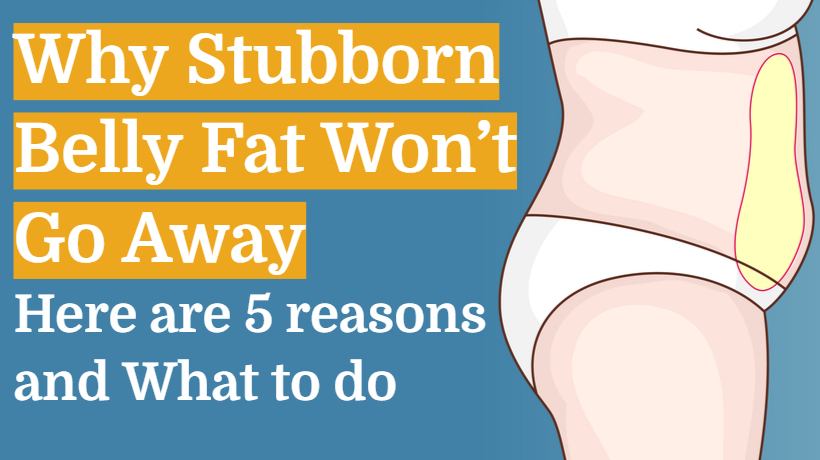Belly fat, otherwise known as visceral fat, can be one of the trickiest places on the body to lose weight. Especially as we get older, it can be harder for people to lose weight and keep it off, especially with decreased metabolic levels. As we age, our metabolism slows and the rate at which we break down food decreases by 10 percent each decade after age 20, according to Piedmont Healthcare.
If you’re struggling to lose that abdominal pudge, here are some helpful information to check that might just give you the answer you’ve been looking for.
It’s your hormones
One of the biggest reasons people struggle to lose their belly fat is often due to age or hormone levels. Whether it’s due to natural shifts in our hormone production or a hormonal imbalance, our body’s hormone levels have a huge impact on our metabolism and ability to lose weight.
“If women gain weight after menopause, it’s more likely to be in their bellies,” says Michael Jensen, MD, professor of medicine in the Mayo Clinic’s endocrinology division. During this time, our bodies produce less estrogen, progesterone, and testosterone, making it increasingly difficult for many people to get rid of that belly pudge.
You’re doing the wrong workout
If you’re looking to slim your waist, cardio workouts like running or spin classes won’t be helpful on their own. Although these are great ways to get your heart rate up, it takes a combination of full-body strength training and cardiovascular exercise to see results.
“Muscle burns more calories than fat, and therefore you naturally burn more calories throughout the day by having more muscle,” says Kate Patton, a registered dietitian at Cleveland Clinic.
Adding weight lifting to your workout will help your body build more muscle, making it easier to burn fat. Moreover, strength training that focuses specifically on your abs and core can help tighten and tone muscles in your abdomen.
You’re eating the wrong fats
It’s important to recognize the difference between “healthy” fats and “unhealthy” fats. Foods high in monounsaturated fats, such as olive oil and avocados, and specific types of polyunsaturated fats, like omega-3s which can be found in walnuts, sunflower seeds and fatty fish like salmon, can help benefit your health, when consumed in moderation. Just be wary of your calorie intake!
You’re not drinking enough water
Extensive research has shown how maintaining a hydrated body helps with weight loss. According to a 2016 mini-review of animal studies published in Frontiers in Nutrition, increasing your body’s water intake may increase lipolysis, the process by which the body burns fat for energy. Although researchers are not conclusive as to whether this data will make a huge difference in weight loss, it is important to remain hydrated throughout your day in order to help maintain your metabolism and prepare your body for any exercise.
You’re drinking too much alcohol
Unfortunately for wine-lovers and beer-enthusiasts, alcohol is often one of the biggest culprits for weight gain. “It’s such a big contributor to calorie intake,” practicing dietitian and sports dietitian Chloe McLeod told The Huffington Post. According to the United Kingdom’s National Health Service, drinking 4 bottles of wine a month can add up to a yearly consumption of around 27,000,000 calories, which is equivalent to eating 48 Big Macs per year. Watching your alcohol consumption, although tedious, can help you achieve those weight loss goals you’ve been trying to achieve.



